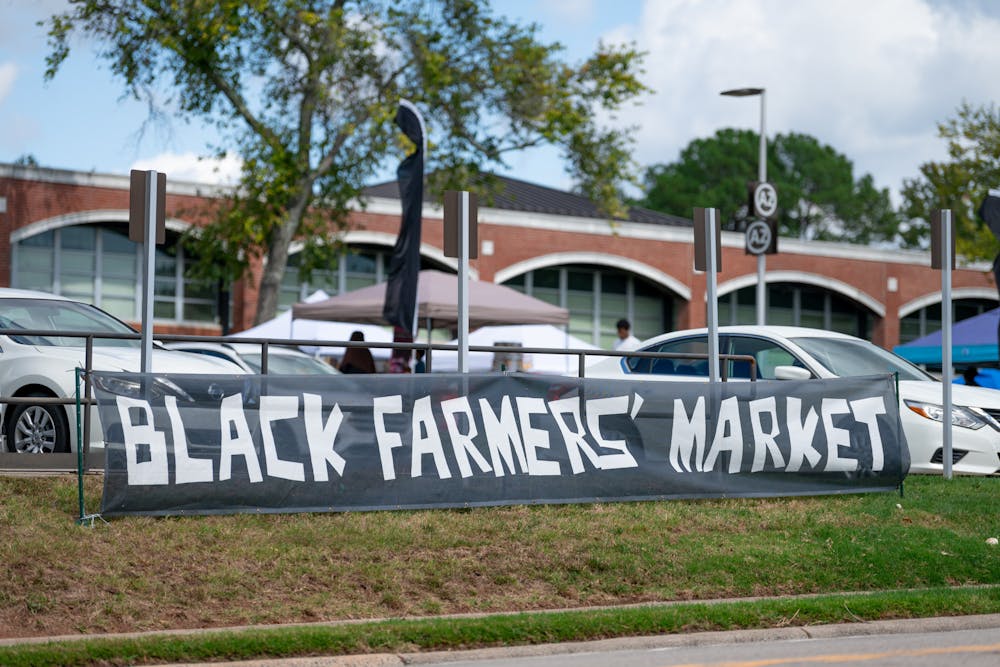Every Sunday, farmers, chefs and musicians gather at The Black Farmers' Market to buy and sell locally grown produce and fresh, handmade foods.
The Black Farmers' Market was founded in 2015 to create a community that supports Black farmers and to help people understand the importance of shopping locally, Moses Ochola, the market's co-founder, said.
"Over the past few decades, a lot of Black farmers have lost land that they've been cultivating for decades," he said. "And what we are trying to do is shed a light on that and support them financially but do community work as well."
Ochola is also a co-founder of Black August in the Park, an organization that meets annually to inspire and connect people of the African diaspora and engage in social and cultural change.
A century ago, there were 950,000 Black farmers in the U.S. In 2019, there were only 45,000.
"It's bigger than just the numbers of farmers disappearing or decreasing over 100 years, it's the fact that the land itself was stolen within those 100 years," Jameson Fuller, the produce manager at Weaver Street Market in Carrboro, said. "So that option became less likely because a lot of African Americans lost so much of their land, even my family included, unfortunately, here in Orange County."
He said that The Black Farmers' Market has been a hub for local farmers in the Black community and has provided them the opportunity to make a name for themselves in the local area.
Ochola pointed to farms like Pine Knot Farms and 4M Farm as some of the market's largest producers.
One featured event the market hosts multiple times a year is Grazefully Rooted, a farm-to-table dinner that Ochola said is intended to connect people to farmers and chefs that participate in the market.



